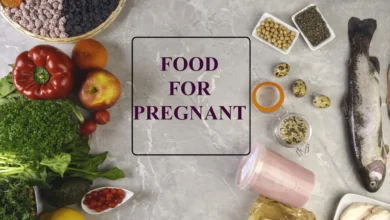You may have imagined starting a family differently when you were young. You may have imagined that you’d be married, or in a long-term relationship with a partner with whom you can imagine a future and a family. You thought you had plenty of time to settle down, start a family, and have a child in your early 20s. You may begin to feel the pressure of your biological clock as you grow older. Are You Single and Want to Have a Baby? How do you proceed if you are single but want a baby?
Many women are in this situation they’re in their late thirties or beyond and want to be a mother but have no partner. You don’t have to be married to have children. There are more and more women choosing to have children on their own. Thankfully, there are many options for women who want to start a family. Single women can now experience motherhood, whether they are single out of choice or haven’t found the right partner yet.
Creating A Plan B
Most of us dream about having a large family at some point in our lives. We want a partner, a house, and children. Life doesn’t always go according to plan. You may have ended a relationship or not found the person you wanted to start a new family with. Others may prefer to do it alone because they realize that a partner is not necessary to achieve their motherhood dream. For many women, the decision to become parents without a partner may be the best way forward.

It’s perfectly normal to be unsure or disappointed if your original plan to raise a child with a partner hasn’t worked. Modern times have given us more options than ever to achieve our goal of becoming a mom, with or without a spouse. These options are being explored by many women, and going it alone can empower and fulfil them.
Times Have Changed
In the last few decades, society’s view of what constitutes a normal family has changed significantly. The notion that a child must have a mother and a father to grow up in a two-parent family is not as rigid as once thought. Today, women have more options than ever before when it comes time to start a family. Single mothers are on the rise, with society increasingly accepting this choice.
Single motherhood has become more acceptable due to the rise of career-driven, independent women who are financially secure and capable of raising children alone. Many women, whether they are in their late 20s or 30s and even in their early 40s, have the power to decide to have a child without a partner. This is no longer taboo.
It is more common to have children alone. With a strong financial base, a circle of supportive friends and family, and a good support system, it is easier to parent on your own. The shift in attitudes has allowed women to determine for themselves whether they want to be mothers, and if they do, they can decide without a partner.
The concept of a traditional family, with a mother and father in a partnership, is no longer the only accepted model. More women are realizing that they don’t need to follow the conventional path to motherhood. This change is empowering and allows women to make choices that align with their personal goals and values. With advancements in fertility treatments, support networks, and evolving societal views, the path to becoming a mother is more flexible and varied than ever. The increasing acceptance of single motherhood reflects the broader shift towards recognizing diverse family structures and honoring the unique ways individuals choose to build their families.
Exploring Your Fertility Options
There are many fertility options available to single women who want to have a child. Today’s advances in reproductive medicine make it easier for single women than ever to become parents. Here are the top methods used by women who don’t have a partner and want to become parents.
Insemination Artificial (AI)
The process of artificial insemination is also known as intrauterine sperm insemination. This involves the insertion of sperm using a catheter or syringe into a woman’s uterus. The sperm may come from an anonymous or known donor. It is a popular option for women who are single and want to get pregnant.
In Vitro Fertilization (IVF)
This is a more complex process in which eggs are removed from the ovaries and fertilized with sperm in a laboratory. The embryos are then transferred back to your uterus. Women who are having difficulty conceiving or who wish to have more control over the sperm they use will often be recommended IVF. IVF allows you to freeze embryos and use them in the future. This is a good option if you are older, have a health condition that could affect your fertility, or if other methods haven’t worked.
Egg-freezing
You can freeze your eggs if you are in your early 20s or 30s and not ready to have a child yet. You can freeze your eggs to preserve your fertility and then use them later when you are ready. You can increase your chances of conception by freezing your eggs earlier. Women who wish to delay having children but do not want to give up the chance to have biological babies in the future can opt for egg freezing.
Adoption
For women who want to be mothers but do not wish to go through pregnancy, adoption is an excellent option. Adoption is a great way for women to become mothers and find joy. Many agencies can guide you through this process, even though adoption laws and procedures vary from country to country. You can give a child the home they deserve while also fulfilling your dream of becoming a mom.
The Surrogacy
A surrogate mother can carry the pregnancy for you, often using your egg and sperm from a donor or partner. Surrogacy is when a woman carries your pregnancy, using either your egg or sperm, from a partner or donor. Surrogacy can be a complex process, both legally as well as emotionally. It requires significant planning, support, and guidance.
Fertility Preserving for Medical Reasons
Women who are facing medical conditions such as cancer treatment or other diagnoses that could affect their fertility may choose to preserve it. A woman can freeze her embryos or eggs before she undergoes treatments that could compromise fertility. This allows women to have biological children in the future, even if they’ve had their fertility affected by medical treatment.
A Solo Parent By Choice
Many resources are available to support women who decide to become single mothers. There are many fertility options and services available for women who want to be single mothers.
Women who are considering being single mothers must decide if they want to freeze their eggs to preserve fertility, or if they would like to try to have a baby right away. This decision is heavily influenced by the age of the woman since female fertility starts to decline around the mid-30s. Women are at their most fertile age between 20 and 30. The fertility of women peaks at around 30 and gradually decreases afterward.
If you’re in your late 30s or 40s and want to use your eggs for conception, it’s important to begin thinking about your fertility options as early as possible. The quality and quantity of your eggs decrease as you age, making conception more difficult. If you are thinking about using your eggs and want to maximize the chances of conception, then act immediately.

Be Prepared for Your Journey
Single motherhood can be a rewarding and challenging experience. Modern medicine offers many options for women who want to have children alone. However, it is important to understand the full extent of this journey. It is important to consider the full scope of what this journey entails.
It’s important to prepare yourself for the physical, emotional, and financial demands of motherhood before you decide to go it alone. Consider these important factors:
Financial Stability
Raising a baby on your own is expensive. It’s important to be prepared financially for the costs associated with pregnancy, childbirth, and raising a kid. Consider your income, your savings, and your long-term goals to make sure you and your child can be supported.
Emotional Ready
As a single mother, you will carry a heavy emotional burden. You must assess your emotional readiness for raising a child on your own. It’s important to be emotionally prepared to provide your child with a loving, stable environment.
Support System
Raising children as a single mother or father doesn’t have to be done alone. A strong support system — through friends, family, or community groups is essential. You need people who you can trust for advice, emotional support, and help.
Work-Life Balance
As a single mother, you will need to have excellent time management skills to balance work, childcare and your personal life. You should plan and create systems to help you manage these responsibilities.

Conclusion
You should carefully consider whether you want to become a single parent. Single motherhood is a powerful experience, even if it may be intimidating to some. Today, women have more resources and opportunities than ever to control their fertility. This allows them to create a family according to their preferences. Single women don’t need to wait to have children for the “perfect partner” anymore, thanks to advances in reproductive technology. There are many options to choose from when you want to become a mother without a partner.
It is important to be confident about your decision and to feel supported by family, friends, and your community. You should never be pressured to start a family by social norms or expectations. You should trust your instincts and be ready for the journey. Modern fertility treatments and the growing acceptance of single mothers allow you to navigate this journey with confidence.



